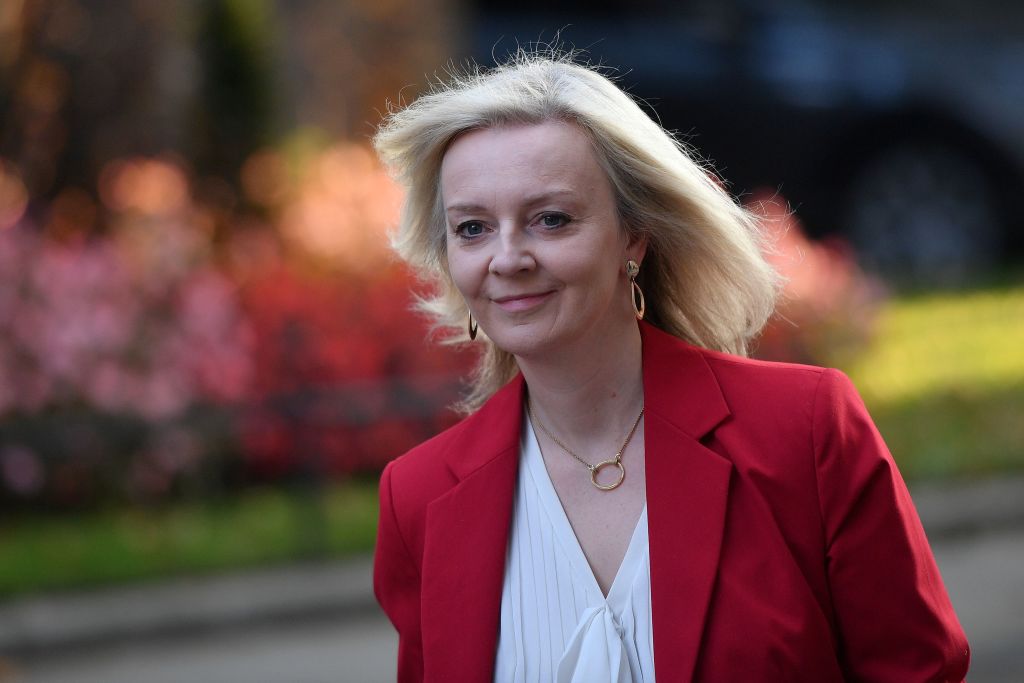The Equality and Human Rights Commission has unceremoniously dumped Stonewall – and who can blame it? Its excuse for ceasing to pay at least £2,500 a year for the privilege of being part of Stonewall’s ‘diversity champions’ programme was that it did not offer ‘value for money’. For all the anodyne corporate-speak, it seems clear the increasing toxicity of the Stonewall brand played a big part in the decision.
There was another factor in play here too. Interestingly enough, while Stonewall’s stock goes ever downwards, the outlook of the EHRC seems to be changing for the better. Getting shot of Stonewall, despite widespread acceptance of this organisation by public bodies up and down the country, is only one instance.
In April, to everyone’s surprise, the EHCR confirmed that ‘gender critical’ beliefs are protected in law. It said in a statement:
‘We believe it is important that our courts and tribunals continue to robustly protect freedom of religion or belief.’
This was a remarkably conservative move for a body of this type
This was a remarkably conservative move for a body of this type. So what is happening?
The answer lies in some discreet but astute manoeuvring by Liz Truss, the minister responsible for the EHCR. Last year, she appointed four new commissioners to its board. These included Jessica Butcher, a successful entrepreneur; Su-Mei Thompson, a corporate lawyer with management experience at, among others, the FT and Christies; and David Goodhart, a journalist of fiercely independent views who works for Policy Exchange. Interestingly, none of these was an activist: and none accepted unquestioningly the narratives of structural oppression or the like.
Many on the usual suspects howled in response. David Goodhart, in particular, was attacked by the Runnymede Trust and the Muslim Council of Britain for his scepticism about anti-racism. The real worry among progressives, however, was that it was obvious none of the new appointees was a malleable member of the cosy coterie of the equality establishment. The Institute of Race Relations, a left-wing race pressure group, nicely let the cat out of the bag when it tweeted about a ‘very real danger of an end to a progressive equalities agenda in this country.’
Whatever you think of the Institute of Race Relations, its take was spot-on. Such an agenda has been plain to see in recent years, with the EHCR at the thick of it. Originally set up by Tony Blair in 2006, as a government super-agency to replace and supersede the Commission for Racial Equality and a few other official equality bodies, in the next fourteen years the EHRC quietly morphed into something rather different. It became a de facto progressive pressure-group in its own right, subsidised by the government to agitate for political change – and indeed, at times, to act as a kind of ersatz opposition.
The Commission had, for example, published documents such as Is England Fairer? and Is Wales Fairer?, both embodying fairly unashamed egalitarian political propaganda. In 2017, it excoriated Theresa May’s government for not accepting UN demands over welfare, the detention of would-be immigrant children and the ‘tackling of hate speech in the media’.
A year after the EU referendum it insisted the UK should keep in lockstep with future EU equality laws even after Brexit, and make all future trade agreements conditional on strict observance of human rights clauses. In 2019, the Commission returned to the attack, suggesting it would be prepared to use its legal powers to protect the teaching of LGBT issues in schools.
Meanwhile, despite being a body set up to protect equality and human rights generally, it had become increasingly selective in the rights it promoted. In 2018, for example, it made clear its displeasure at a conservative church possibly taking advantage of its legal right to religious freedom in matters of sexual orientation. In its approach to draconian Covid restrictions, it fairly openly put issues of equality well above rights to personal freedom. Back in 2017, it acted much in the manner of a mischief-making opposition political party when it ostentatiously set up a parallel inquiry into the Grenfell Tower debacle while the official one was still under way.
Liz Truss has clearly been worried by these developments. There is now little doubt of her desire to do something about them by tackling the idea of the EHRC as a kind of semi-official progressive think-tank supported at the public charge. Instead Truss is determined to ensure it concentrates on enforcing, impartially, the existing equality laws.
Truss is right to do so. There is every reason for a body supported by taxes to be at the forefront of enforcing equality laws passed by the government elected by the people who pay them. But political propaganda and agitation, however good the cause, are something best left to non-governmental bodies, especially when there are plenty of left-leaning think-tanks and pressure-groups to choose from already.
So far the omens have been good. The EHRC’s new-found preparedness to support rights inimical to progressive opinion, such as the right to express gender-sceptical views without being sacked, is a very welcome sign. So is its abandonment of the Stonewall connection, if only because support for a partisan pressure-group is inconsistent with what ought to be its function: the disinterested enforcement of all equality rights.
Whether this run of good news will continue we don’t know. Liz Truss’s smart about turn order to the EHRC may conceivably have succeeded in reversing the progressives’ long march through that institution. Whether it will start a more general retreat in our country’s other institutions remains to be seen. We can only hope.






Comments